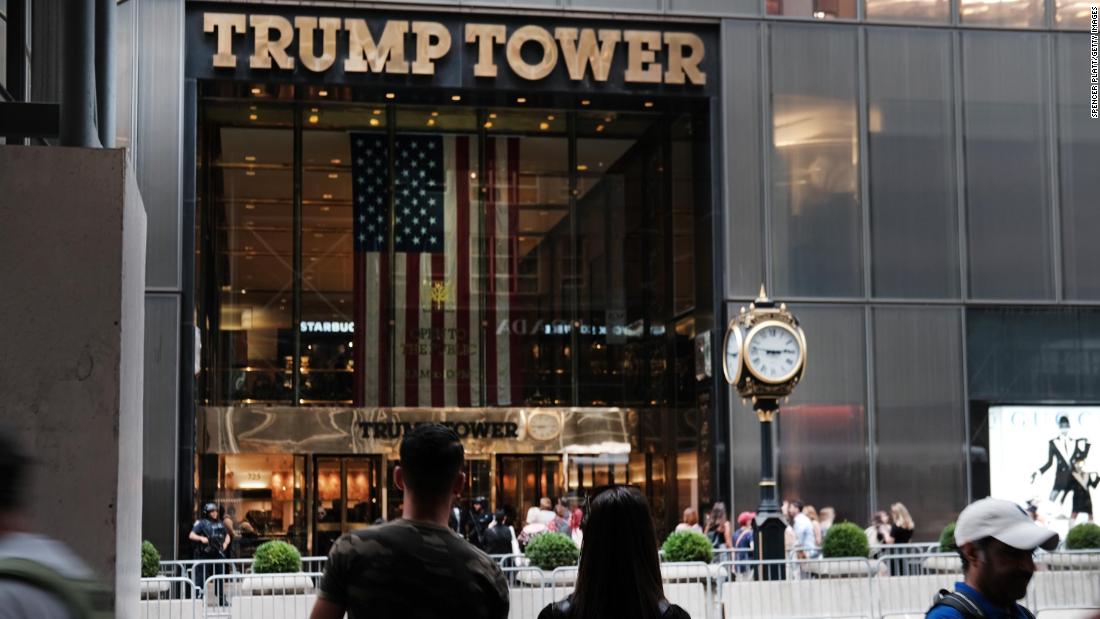Analysis: Tax evasion is the go-to charge for Trump’s inner circle
Yet the charges — tax evasion — felt familiar. Trump’s associates have demonstrated a tendency to get into trouble for lying about their taxes.
His former lawyer — Michael Cohen — went to prison for hiding income from, among other things, hiding income from taxi medallions and orchestrating hush money payments to buy off women who said they’d had affairs with Trump.
Disdain for taxes flows from the top of the Trump pyramid. Trump has bragged about his ability to avoid paying taxes and fought hard to hide his tax returns from prosecutors and from Congress. However, we know thanks to The New York Times that he paid no income tax in some years thanks to massive write-offs. We know he has worked to make property seem less valuable for tax purposes and more valuable when he wants to appear wealthy, a practice the Manhattan DA has also scrutinized.
The anti-tax President. We also know that Trump’s biggest achievement as President was a permanent slashing of US corporate tax rates and a temporary individual tax cut that drove up deficit spending.
More to come? But this relatively small-time alleged grift — which prosecutors say included an array of luxury perks including an Upper West Side apartment, a pair of Mercedes-Benz cars for him and his wife, and private school tuition for two family members — is not the large-scale fraud that professional Trump haters might have been anticipating after years of scrutiny of Trump’s affairs.
The Trump Organization said in a statement the prosecutors were engaging in political persecution.
“This is not justice; this is politics,” it said in a statement attributed to a spokesman.
Loyal soldier. It may also be a form of pressure. Weisselberg, who has worked for Trump (and his father before him) since 1973, has declined to cooperate with prosecutors in a wider-ranging investigation of Trump.
The indictment of the Trump Organization is the product of more than two years of investigation by the district attorney, Cyrus Vance Jr., a probe that began with questions about accounting practices tied to hush-money payments made by former Trump lawyer Michael Cohen and eventually led to a Supreme Court fight over a subpoena for Trump’s tax documents.
“Tip of the iceberg.” Cohen appeared on CNN Thursday and said he expects prosecutors will eventually bring charges against other Trump Organization executives — if not the former President.
“The target of this investigation is not Allen Weisselberg,” Cohen said. “Of course it’s the CEO of the Trump Organization, Donald Trump himself.”
But it includes Weisselberg, his son, Barry, who runs Trump’s Central Park ice skating rink among other things and is going through an extremely contentious divorce with Jennifer Weisselberg, who cooperated with New York prosecutors.
What else?
From CNN’s report: 17 states have enacted 28 laws since the 2020 election that restrict ballot access, according to a new tally as of June 21 by the Brennan Center for Justice at the New York University School of Law.
Massive deficits. From CNN’s reporting: Unprecedented federal spending in response to the pandemic will push the budget deficit to $3 trillion for the 2021 fiscal year, the Congressional Budget Office said on Thursday.
That is according to updated forecasts by the nonpartisan budget office. That level would mean 2021’s deficit is triple the shortfall of 2019, but about $130 billion lower than 2020. Last year, the deficit hit a record $3.129 trillion due to huge relief aid coupled with a big drop in economic activity.
The OECD’s framework includes a global minimum tax of at least 15% on multinational companies. The plan also holds that the biggest companies should pay tax where they generate sales and earn profits, and not just where they have a physical presence — a move that could have major ramifications for top tech companies like Google (GOOGL) and Amazon (AMZN).
More than 154 million Americans had been fully vaccinated as of Thursday morning, according to the US Centers for Disease Control and Prevention, and more than 57% of Americans 18 and older are fully vaccinated.
![]()


